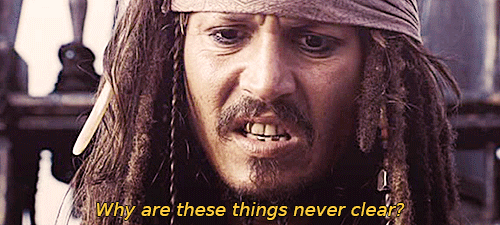Hier ein Artikel von F4W ueber die Cruiserweight Division:
f4wonline.com/other-wrestling/…hs-wwe-missing-out-223871

One of the most striking things about WWE these days is not just that they struggle to avoid repeating past mistakes, but their complete inability to understand their successes.
Their efforts to build on the buzz generated by this year's Cruiserweight Classic is yet another example of this as, at every turn, they’ve misunderstood what made the tournament such a highlight of the pro wrestling summer.
The fundamental mistake was them believing the positive reception to the CWC was due to the program being focused around cruiserweights. And while it made sense to focus on smaller wrestlers because of the deep talent pool, the CWC's true strength was in the booking and presentation, the very things that WWE refuses to replicate with its current push of the cruiserweights.
Here's five strengths of the cruiserweight division WWE isn't capitalizing on:
Strength #1: Fresh Matches
One commonly overlooked truth about WWE is that its roster is far too small to effectively produce as much product as they’re currently contracted to do. This leads to them being forced to book rematch after rematch which lends a sense of staleness to the product. After all, AJ Styles and Dean Ambrose are great but if I see them wrestle one more time, I’m going to scream.
The decision to bring on unsigned talent from the American independent scene and foreign promotions for the CWC radically altered this calculation. Every matchup presented in the tournament was one that WWE fans had never seen before.
It goes without saying that this is something WWE has failed to do with the new cruiserweight division where we’ve already seen Brian Kendrick and T.J. Perkins wrestle four times in less than two months.
Strength #2: Variety of Styles
The CWC further capitalised on these fresh matchups by moving away from the WWE "house" style. That everyone is forced to wrestle in the same way, with the unique strengths and weaknesses smoothed over in favour of a style that primarily consists of exchanging punches and power moves is something that further adds to WWE feeling stale.
The CWC was a breath of fresh air because it allowed performers to be true to their own individual style with wrestlers showcasing the best of strong style, lucha libre, English grappling, and more. Again, this is a lesson WWE hasn’t learned with the cruiserweight matches by deciding to either conform to WWE style particularly true of the Kendrick-Perkins matches) or simply come off as a poor imitation of a WCW cruiserweight division tag team match with no-name cruiserweights doing dives for no reason.
Strength #3: The Tournament Format
Kendrick’s quest for redemption illustrates the biggest strength the CWC had over mainstream WWE. Due to the tournament format, the storyline of Kendrick needing to win to secure redemption actually made sense. With each victory, he got closer to winning the tournament whereas a defeat would end his quest to return to the major leagues.
On RAW, there’s no consequences to a defeat; Kendrick will still be there the following week as a major player in a shallow division. This is the great strength of a tournament format as it acts as a shortcut to making wins and loses matter. With each matchk, we knew that somebody would win and continue to be featured while somebody would lose and go home. It’s a simple and effective way to give real stakes to a wrestling match.
Strength #4: Presentation
The benefit of the fresh matches, variety of styles, and tournament format were all maximized by the presentation. There was nothing revolutionary about the production, but it was a crisp, efficient presentation of a serious wrestling show. There were no long promos, goofy comedy sketches, or histrionic angles. Rather, we got short video packages explaining the background and personality of the competitors. Mauro Ranallo and Daniel Bryan effectively highlighted the key storylines, both outlining people’s journey to a particular match and explaining key subtleties of the action.
Strength #5: Recording Schedule
One of the underappreciated strengths of the CWC, NXT, TNA, and ROH is that recording a block of television shows far in advance of their airdate forces a promotion to plan ahead. It is impossible to book week to week if an entire month’s television is already recorded. Likewise, prerecording pro wrestling allows for matches to be improved in the editing process (as apparently happened with the Kota Ibushi vs. Cedric Alexander match) and for the overall television to move at a faster pace.
It’s therefore typical that WWE has chosen to make its new cruiserweight program a weekly live show, something that will surely lead to the same rushed and incoherent booking, and baggy presentation.
None of the Cruiserweight Classic’s key strengths are exclusive to cruiserweight wrestlers. Likewise, throwing random cruiserweights into the mainstream WWE product doesn’t magically recreate the CWC just because they change the ring apron and ropes. They could easily arrange for a quarterly tournament that brings together WWE, NXT, and outside talent for thirteen weeks.
They’re already organising a women’s tournament and there’s the talent to do a great tag team one as well. Additonally, tthe Wrestlemania season could feature the return of King of the Ring as an openweight tournament to rival G-1.
Rather than flog the cruiserweight horse, the WWE should be seeking to build on what actually made the CWC successful.
f4wonline.com/other-wrestling/…hs-wwe-missing-out-223871

The Shockmaster botcht sein Debut als er hinfaellt….
Davey Boy Smith kommentiert das trocken im Fernsehen:“He fell flat on his fooking arse…”
Davey Boy Smith kommentiert das trocken im Fernsehen:“He fell flat on his fooking arse…”

